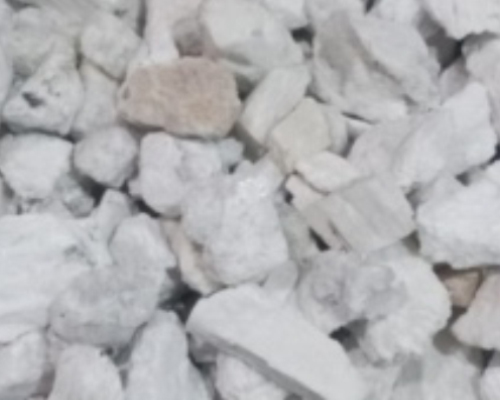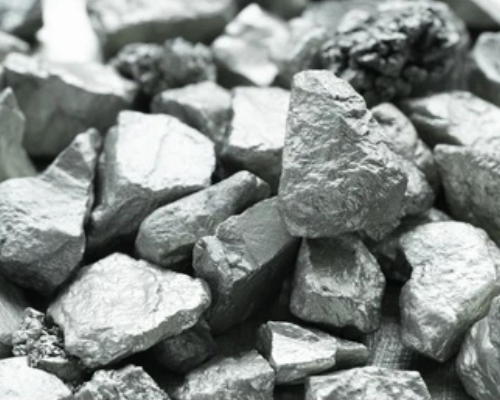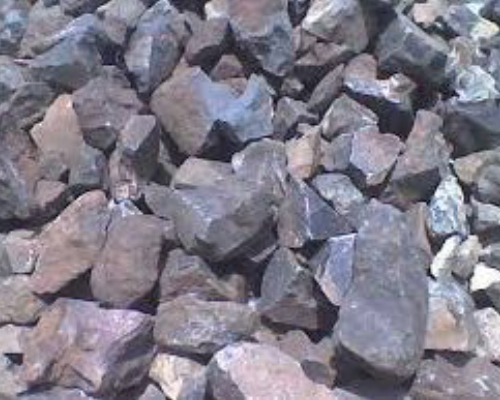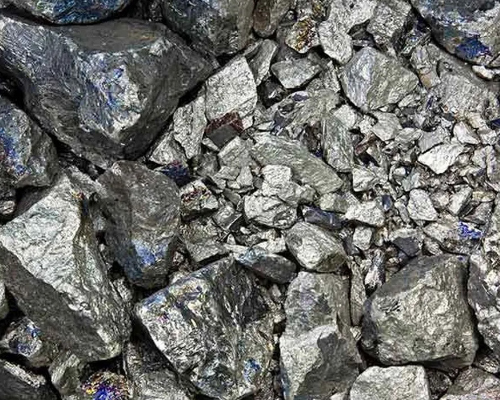NON - FERROUS

What is Copper Ore?
Copper is a versatile metal known for its excellent electrical and thermal conductivity, high ductility, and resistance to corrosion. It's a key material in various industries, including electrical wiring, plumbing, and manufacturing. Pure copper, like ETP (Electrolytic Tough Pitch) copper, contains 99.95% copper and has a high electrical conductivity. Copper alloys, such as brass and bronze, offer different combinations of properties depending on the alloying elements added.

What is Zinc ?
Zinc is a metallic element, symbol Zn, with atomic number 30. It's a bluish-white metal with a high resistance to atmospheric corrosion, making it useful for galvanizing steel. Zinc's melting point is 419.5 °C and its boiling point is 907 °C.

What is Lead ?
Lead (Pb) is a heavy metal element with several key specifications, including its physical properties and chemical composition. It's characterized by a silvery-Gray, lustrous appearance and is a relatively soft and malleable material. Lead has a relatively low melting point of 327.462 °C and a boiling point of 1749 °C. Chemically, it's part of Group 14 (Iva) of the periodic table and has atomic number 82.

What is Lithium ?
Lithium metal, a soft, silvery-white alkali metal, has a low density (0.534 g/cm³) and high melting (180.50 °C) and boiling (1342 °C) points. It's used as an anode material in rechargeable batteries due to its high theoretical specific capacity. Lithium ion batteries, a common type of lithium battery, have a nominal voltage of 3.7V, and a capacity measured in mAh or Ah.

What is Aluminium ?
Lithium metal, a soft, silvery-white alkali metal, has a low density (0.534 g/cm³) and high melting (180.50 °C) and boiling (1342 °C) points. It's used as an anode material in rechargeable batteries due to its high theoretical specific capacity. Lithium ion batteries, a common type of lithium battery, have a nominal voltage of 3.7V, and a capacity measured in mAh or Ah.

What is Titanium ?
Titanium is a strong, lightweight metal known for its high strength-to-weight ratio and excellent corrosion resistance. It's often used in applications requiring high strength and resistance to harsh environments, such as aerospace, medical implants, and sporting goods. Titanium can be alloyed with other metals to enhance its properties, such as strength, ductility, and weldability.

What is Nickel ?
Nickel is a hard, ductile, and corrosion-resistant metal with a variety of specifications based on its purity, composition, and form. It's a silvery-white metal that is a good conductor of heat and electricity, and it's magnetic below its Curie temperature (355°C). Nickel is commonly used in alloys, particularly in stainless steel and other heat-resistant steels, and it's also used in coin production, batteries, and various industrial applications.



